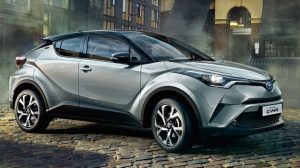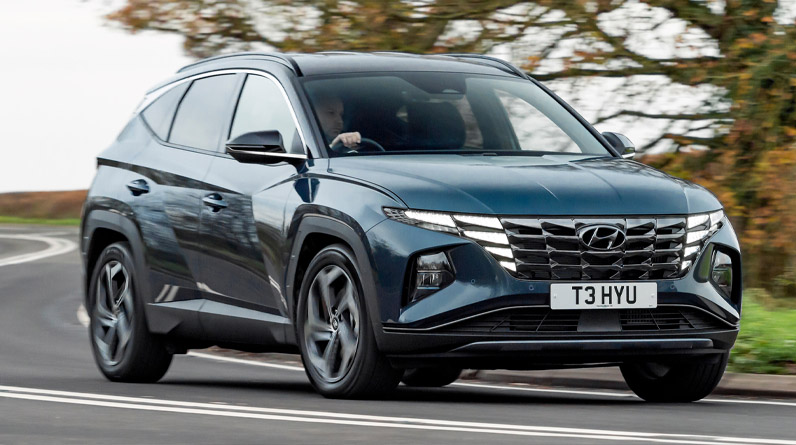In recent years, the term “self-charging hybrid” has exploded onto the market, with many people suggesting to those with plug-in hybrids that they should have purchased the “self-charging” variant instead.
But what does this discussion about hybrids actually entail? Let’s define all of these hybrid vehicles.
What are hybrid vehicles?
In its purest form, a hybrid automobile is a vehicle with both an internal combustion engine and a battery. It uses a combination of both power sources to propel the vehicle, and there are a variety of hybrid kinds and configurations.
All hybrids control the energy flow automatically, and many allow you to drive only on battery power if you so desire. This implies the vehicle emits no exhaust fumes and operates quietly without engine noise.
In general, the goal of hybrid cars is to reduce tailpipe emissions and traditional fuel consumption, allowing for the possibility of reduced motoring costs and the potential to reduce air pollution in certain conditions. In some regions, there are also lower rates for environmental fees and taxes.
What is a hybrid that charges itself?
Lexus and Toyota are aggressively promoting the self-charging hybrid marketing phrase. It is frequently utilised in advertising and is used to distinguish between plug-in hybrids and those that cannot be plugged in.
A self-charging hybrid is, in actuality, an ordinary hybrid. In the advertisement below, Lexus seems to tout “no plugs” as an advantage, although in truth, all hybrids and electric vehicles are self-charging to some degree.
Hybrid automobiles employ regeneration to recharge the battery: rather than braking by friction and converting kinetic energy (forward motion) into wasted heat via the brakes, it uses it to power a generator that recharges the battery. They can also immediately recharge the battery using the engine.
As a result, self-charging hybrids are superior for stop-and-go driving: if you maintain a constant speed on the highway, there are less opportunities for energy recovery. And you’ll never be able to travel more than a couple of miles on the battery alone before the engine kicks in to recharge the battery. Ultimately, remember that energy cannot be created out of thin air; therefore, if you don’t plug it in, you’ll be using the combustion engine for power.
The Toyota Prius is a typical example of a normal or self-charging hybrid. Numerous Toyota and Lexus vehicles offer this technology, which is essentially the vehicle that began the revolution in hybrid powertrains.
Therefore, a self-charging hybrid is one that cannot be plugged in. Here are several examples:
- Toyota Prius
- Lexus LC500h
What is a hybrid plug-in?

Plug-in hybrids (or PHEV – plug-in hybrid electric vehicle) offer the ability to recharge the battery by connecting the car into an electrical outlet. This implies that you are not dependent on regaining energy through regeneration or using the engine as a generator to charge the battery.
This means you may leave your home knowing your battery is fully charged. Because the batteries of plug-in hybrids are larger than those of self-charging hybrids (usually, you can drive around 30 miles on the battery alone), you may elect to complete your urban or local driving in battery mode, only switching to the engine on longer highways where range may be an issue.
The plug-in hybrid retains the same regenerative braking system as a “self-charging” hybrid, thus in essence, nothing is lost. Due to the charging adaptations and larger battery, plug-in hybrids are often more expensive than comparable conventional hybrids.
The Hyundai Ioniq and Toyota Prius are both available as standard hybrids or plug-in hybrids, with a roughly £5,000 price difference between the two. However, both plug-in variants feature bigger battery capacities, providing more power and driving range on electric alone. The electric range of a plug-in hybrid is limited, and if you do not engage in stop-and-go driving, the battery quickly depletes and becomes (literally) dead weight, therefore highway fuel economy is poor.
What exactly is a mild hybrid?
A mild hybrid may not actually belong on this list. In accordance with our initial definition of a hybrid vehicle, we include it here.
Mild hybrid vehicles include a supplementary battery in addition to an internal combustion engine to power a secondary electric system. This technology can be utilised to alleviate some of the engine’s load, hence decreasing fuel consumption.
Audi, for example, has an MHEV (mild hybrid electric vehicle) system that allows the car to coast for up to 40 seconds with the engine off and revs the engine back up to speed to improve the car’s driving dynamics and the stop-start experience. The fuel savings is around 0.7 litres per 100 kilometres.
Self-charging and plug-in hybrids are more likely to be purchased because of a desire to cut exhaust emissions, but the MHEV offers a smaller advantage. Here are several examples:
- Audi A7
- 48V Kia Sportage
Which hybrid is the best?

Ultimately, if the objective is to lower the environmental costs of driving, plug-in hybrids are preferable. This will allow you to drive totally on the battery for short distances, such as the school run, weekly shopping, or your commute, so you can charge at home and cut emissions and fuel expenses.
In terms of reducing fuel costs in all situations, hybrids do poorly on longer motorway drives because the battery does not provide much support and conventional diesels are often cheaper to operate (in terms of fuel costs) than hybrids. As a diesel with improved efficiency, the MHEV configuration can be more efficient in this situation.
Ultimately, if you want to cut pollution and fuel costs over longer distances, you may find that a fully electric vehicle is the best option. With 300-mile ranges becoming more typical, a recharge costing significantly less than a diesel tank, and zero exhaust emissions, only individuals desiring longer ranges without stopping for recharging may struggle with an electric vehicle.
Read More Like This Here
